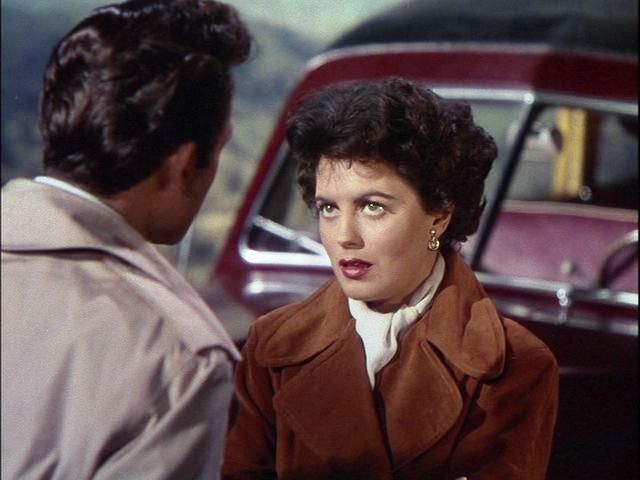
Yes, it’s the film that inspired this blog’s title, so it’s about time I got around to reviewing This Island Earth, all the more so considering that I had not seen it since a single viewing in my early teens. Based on a novel by Mormon pulp writer Raymond F. Jones, This Island Earth was another production by William Alland for Universal Studios after his success with the likes of Creature from the Black Lagoon (1953) and It Came From Outer Space (1953), and it represented an obvious leap in ambition and scale, shot in Technicolor and sporting special effects that were, at the time, groundbreaking, and which remain beautiful and fascinating, if often very dated. The makers of Forbidden Planet (1956) reputedly borrowed a print from Universal to model some of their own work on, and the result is one of the most visually and thematically iconic works from the legendary sprawl of ‘50s sci-fi cinema.


The plot is hardly watertight, but it’s dense and clever, and revolves around an imaginative bluff, a geek’s delight, that would later be reworked by The Last Starfighter (1984), in which an Earthly hero completes a difficult task and discovers it was a test that places him contact with aliens, desperate for aid in an intergalactic war. The hero here is atomic research scientist Cal Meacham (Rex Reason), who’s introduced reporting on his efforts to transmute common elements into fissionable material to journalists. This is a film from the days in which movie scientists were manly men who pulled jumpsuits on over their suits to fly private jets and spoke with bass-baritone voices. Strange phenomena begin proliferating around Cal




This Island Earth’s cleverly delayed revelations means the part everyone’s waiting for commences an hour into an 86 minute running time: the voyage to, and adventures on, Metaluna. That planet is under siege by an aggressive race called the Zygons, who live on a planet that was once a comet, and, determined to wipe out the Metalunans, bombard that world constantly with asteroids. Having used up all their supplies of uranium to maintain a repelling shield, the Metalunans face complete destruction unless Cal and Ruth can finally make good on their neo-alchemic experiments. The screenplay, written by Franklin Coen and Edward G. O’Callaghan working with Jones’ material, is essayed on a reasonably elevated conceptual level, with Exeter



The canny story point that provides the narrative’s initial thrust, that tantalising technological handbook arriving in the mail, evokes the very underpinnings of sci-fi fandom itself. So often in those days such fandom was built around the notion that portals to world-expanding, even transcendent, happenings and creations might indeed be regularly posted to you, and required only receptive intelligence and a sense of adventure to fully grasp. Meacham’s insatiable curiosity, like that of the audience, who have come for a ride, is whetted by hints of the unimaginably advanced and alien, and taken through stages to whole new levels of awareness: as the prosaic Wilson shouts in panic at Cal to leave the pilotless airplane, Cal never seems to consider doing as he says, because whatever fear is inside him is subordinate to his desire to understand the enigma. And indeed, having been anointed by passing the test, like a super-modern equivalent of the oldest variety of mythic hero, how could Cal Exeter



We’re left to assume the Zygons, who remain unseen and are portrayed only through their ruthless pummelling of Metaluna and, according to Exeter



This Island Earth is hampered by the usual limitations of films in this genre from the era: a wooden cast, an overly-compressed storyline to fit a regulation running time, and flat direction by Joseph M. Newman, a jobbing director who mostly handled Westerns and the odd film noir piece, who betrayed a minor sense of style. Universal was reputedly displeased by Newman’s work and brought in Jack Arnold to handle some sequences, which may partly explain why the framing and camera angles become more dramatic, and the editing more assured, as it proceeds. Clifford L. Stine’s strong photography, on one of the last films shot in classic three-strip technicolour, bathes in the saturated colours associated with old Amazing Stories covers. Interpersonal scenes in the middle third, when the film should be hitting its stride as an eerie mystery charged with threat, are stodgy and fall prey to the dreariness of the cardboard Reason and Domergue, who more than ever comes across like a particularly witless Ava Gardner clone. Morrow, at least, acquits himself fairly well, evoking some pathos and grace in Exeter Hollywood

